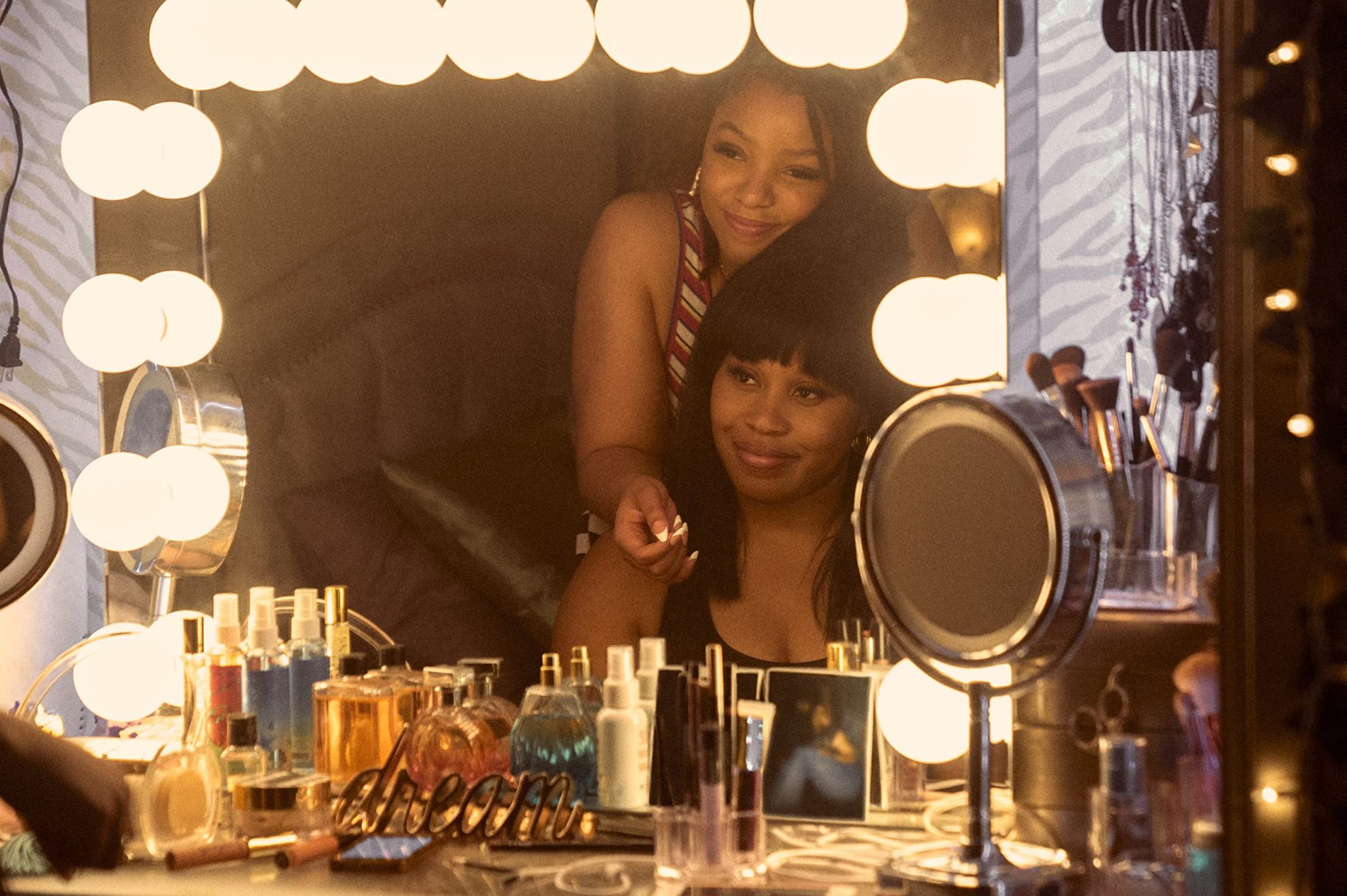
- Television
“Swarm” Has the Internet Buzzing
There’s been quite a bit of natter surrounding the new Donald Glover project Swarm. The seven-episode Amazon Prime series follows Andrea/Dre (Dominique Fishback), a mega-fan of Ni’Jah (Nirine S. Brown)—a popstar who’s not necessarily meant to represent Beyoncé. But the parody is obvious and immediate as each episode begins with the (dis)claimer: “This is not a work of fiction. Any similarity to actual persons, living or dead, or actual events, is intentional.”
Beyond this boldness, Swarm is a wild and unpredictable watch that’s part Lola, part Carrie, and part Bones and All, while giving most mainstream television viewers their very first glimpse of a Black woman serial killer.
With its violence and absurdity, the series probably wouldn’t be palatable without the acting prowess of Fishback. The 32-year-old actress had previously shown glimpses of genius in series like The Deuce and Random Acts of Flyness, and with her BAFTA-nominated performance in Judas and the Black Messiah.
Chloe Bailey, Paris Jackson and Golden Globe-winner Billie Eilish also give biting performances. Mocking their own real-life personas, Eilish plays the worst version of a Bonnaroo devotee (a festival she has played in real life) and Jackson (the daughter of Michael) plays a stripper who performs under the stage name Halsey because, as she explains to Dre, she has Black heritage like the “Without Me” singer. And the show’s actors aren’t the only ones, intentionally or unintentionally, playing with their media caricatures.
Glover, the Golden-Globe winning actor, comedian, singer, rapper, writer, director and producer, has repeatedly been criticized for portraying Black women in flat and unnuanced ways. This week he told Vulture that he didn’t see the show’s protagonist as “layered.” He, in part, commented, “I wanted [Fishback’s] performance to be brutal. It’s a raw thing. It reminds me of how I have a fear with dogs because I’m like, ‘You’re not looking at me in the eye, I don’t know what you’re capable of.’”
If this sounds like an odd thing to say about a Black woman serial killer who deals with her very complex trauma by reinventing herself (and the show’s storyline) in almost every episode, it’s because it is. And appearing to compare this particular character to a dog isn’t doing Glover any favors on the very real social media platform (its name rhymes with glitter) that Dre is portrayed to be using to track her victims.
To complicate things further, Swarm’s co-creator and showrunner Janine Nabers (a Black woman who had previously written for Atlanta) did a separate, simultaneous interview with Vulture saying, “When Donald and I were conceiving of this show, we wanted to tell our own version of these European films we’ve seen in the past, where these characters are complicated and nuanced and we don’t know what they’re going to do next.”
She was also quick to defend Glover, saying that it’s “silly” for people to say that he doesn’t like Black women. “If you take a Black woman you admire and respect and give her a platform to then hire more Black women and cast incredible Black women — Donald did that. After Atlanta, he could’ve had anyone in this business, and he chose to work with me,” she explained.
Nabers used Glover’s belief in her to throw respectability politics out the window and give audiences an unflinching, diabolical, and yes, nuanced, Black woman killer. “As Americans, we’re really comfortable watching white people go crazy because they have earned it in a lot of people’s minds. We wanted to shift that perspective and let it be this Black woman, which we have not seen before, and give her that gravity. It’s okay if it makes Black people uncomfortable watching this Black person do this thing, especially to other Black people. We’ve been seeing this sh*t for years with white faces,” she said.
Casting the pop star of record as a dark-skinned Black woman was also an act of representation and world-building according to Nabers: “You don’t see a woman who’s Nirine’s color that is at the level of stardom that Rihanna is at. An R&B pop superstar does not currently exist who is dark and at the billionaire, ‘I own the music industry’ level. That was very, very purposeful, and I’m really proud of that.”
“At the end of the day, I would hope that Black women watch this show and feel like they are seeing a part of Black femininity they haven’t seen before, and they’re drawn to it,” she added.

